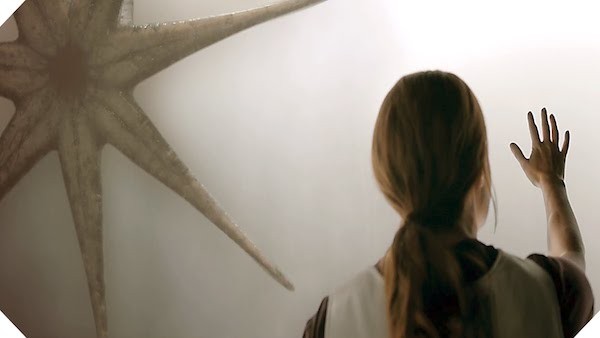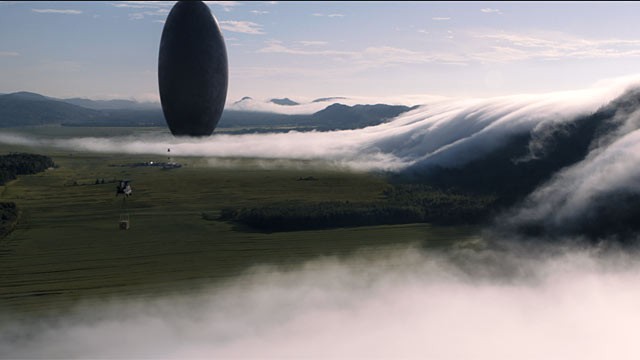Arrival is unlike any other film you will see this year, and to understand why that is, you need to learn about the man who is one of, if not the, best science fiction writers working today: Ted Chiang.
Chiang’s day job is as a technical writer. He has degrees in both computer science and creative writing. Although he has been active for twenty years now, he has never written a full-length novel, only fifteen short stories and novellas. But out of those fifteen works, all of them save one have been nominated for science fiction’s highest awards, the Nebula and the Hugo, and he has won eight times. (The only story that was not up for a Hugo was 2003’s “Liking What You See: A Documentary”, and that was because he refused the nomination, claiming editorial pressure had compromised the piece.) His 2010 story “The Lifecycle of Software Objects” has been a big inspiration for my own writing.

When I heard director Denis Villeneuve was adapting Chiang’s “Story Of Your Life”, I was of two minds. First, the 56-page novella is a masterpiece, combining a first contact story with an exploration into the natures of consciousness and time. The French-Canadian director’s drug war saga Sicario was one of the films that made 2015 a banner year, and he’s signed up for the Blade Runner reboot, so we’ll get a preview of how he can handle sci fi.
On the other hand, I had deep concerns that “Story of Your Life” would be unfilmable. Hitchcock said mediocre books make the best films, and Chiang is the opposite of mediocre. The story follows Louise Banks (Amy Adams), a gifted linguist who is tasked with trying to talk to the occupants of one of the twelve mysterious, giant spacecraft that appear over seemingly random places across the Earth one fall day in the near future. This is no small task. The pair of aliens, dubbed heptapods because they look like seven-legged squid, have nothing that resembles human writing, and their speech sounds like sperm whales playing with a sub woofer. Unlike, say, Star Trek aliens, these creatures are truly alien. And yet, they came all this way to visit us. Louise’s job is to ask them “What is your purpose on the Earth?”, and then translate their answer. But just to get to the asking part of the program is a seemingly impossible task, since the aliens communicate mostly using bursts of ink they expel from their bodies.

You can see the problems inherent in this adaptation. This is a story that revolves around concepts like the Sapir-Whorf hypothesis and concepts of time that emerge from quantum theory, and you zoned out just reading those words. Indeed, bewildered boredom is an entirely understandable reaction to Arrival. But so is awe and wonder. In my opinion, Villeneuve has accomplished what I thought impossible. Arrival stays true to the revelatory spirit of “Story of Your Life” while excising some of the story’s more difficult concepts (Chiang regularly spices up his narrative with diagrams) and adding a dash of Hollywood razzmatazz. The camera work by Bradford Young is not the equal of Roger Deakins’ masterful lensing in Sicario, but the images are frequently gorgeous. The ever versatile Adams gives a restrained performance as a lonely linguist under unimaginable stress who becomes haunted by dreams and visions as she gets closer to the truth of the aliens’ purpose.
Balancing the head and the heart in a sci fi movie is the ultimate challenge for a director. How do you capture the mind-expanding possibilities of the “literature of ideas” while injecting the all-important emotional ups and downs into the mix? Botching the mix is what kept Interstellar from truly taking off, but Villeneuve succeeds where Christopher Nolan failed, thanks to Chiang’s heart-rending subplot, which I won’t reveal too much of here except to say it’s the key to Arrival’s ultimate revelation. Keep in mind going in that this is not an M. Night Shyamalan puzzle movie, or a whodunit. It’s purpose is to use aliens to get you to think deeply about how language and time shapes the human experience.
Arrival